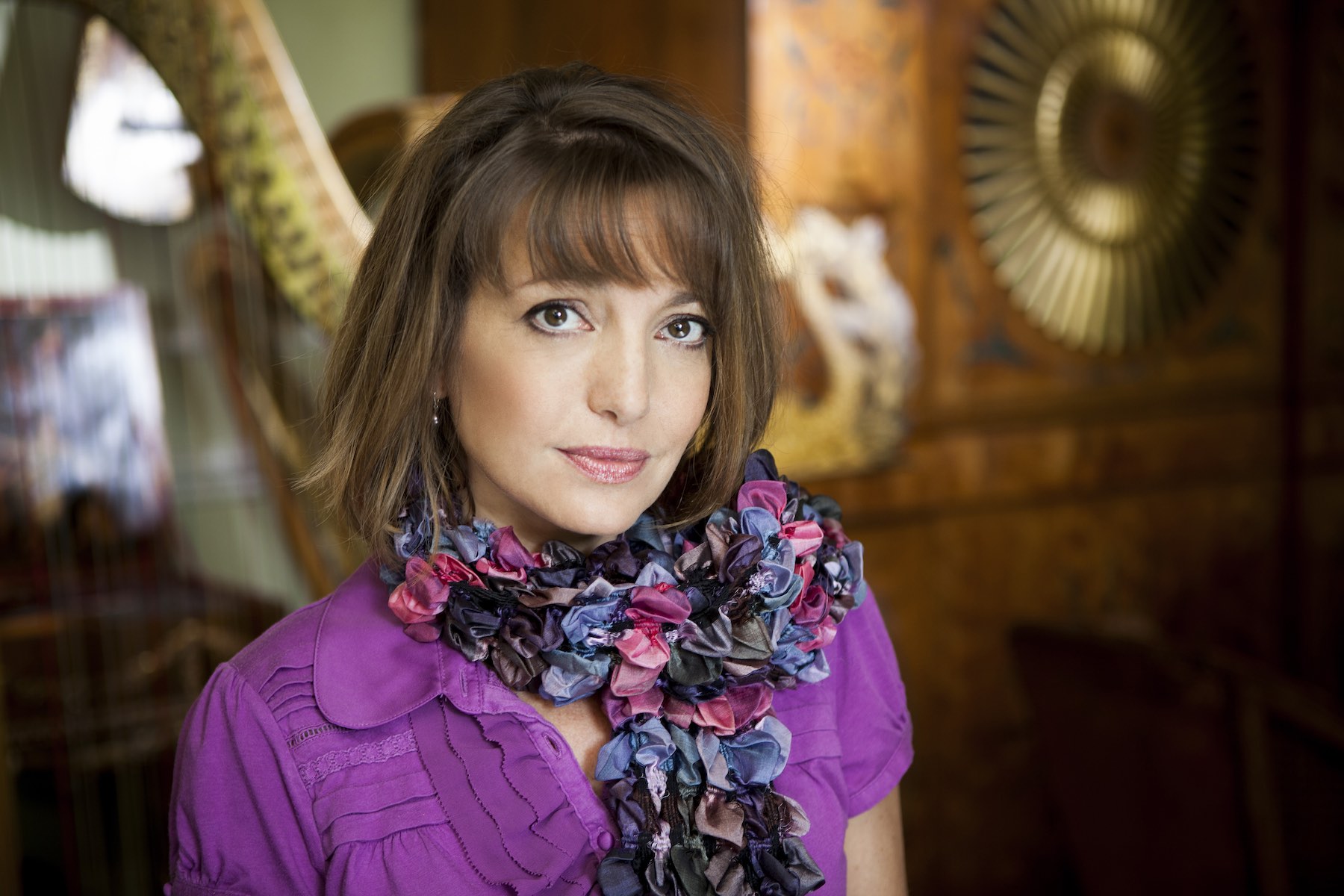
Roxanna Panufnik
Featured this month is composer, Roxanna Panufnik, who has completed two versions of her work ‘Letters from Burma’. The original was premiered by Douglas Boyd and the Vellinger Quartet in 2004. Most recently in 2016, a new version for oboe and string orchestra was premiered by New Oboe Music Project founder, James Turnbull and the Festival Chamber Orchestra (Canterbury, UK). As well as this composition, ‘The Upside Down Sailor’ is featured which is written for Narrator and Wind Nonet.
Letters from Burma
Instrumentation: Oboe and String Quartet (also available for Oboe and String Orchestra)
Duration: 12′
Premiere: Commissioned by Summer Music Society of Dorset for Douglas Boyd and the Vellinger Quartet. Concerto version Premiered by James Turnbull and Festival Chamber Orchestra (Canterbury, UK)
When the Summer Music Society of Dorset commissioned this piece, for Douglas Boyd and the Vellinger Quartet, I had a look at what else was to be programmed with it. I noted Janacek’s Intimate Letters and wondered whether I could compose some “Letters” of my own. Then I came across a remarkable book “Letters from Burma” – 52 letters written by the famous dissident Aung San Suu Kyi to a Japanese newspaper, between November 1995 and December 1996. They describe every aspect of Burma – its culture, scenery, religion, politics etc. – copious inspiration for a new composition!
With the help of Burmese music expert John O’Kell, I discovered a stunning traditional Burmese folk Song Aung-ze pain-ze – a laudatory song of benediction about the power and valour of the King. (And wholly appropriate to depict the bravery and dignity of Aung San Suu Kyi.) The first movement (of the same title) is a straight transcription of part of the song in the oboe, with a new accompaniment in the strings. The whole piece is influenced not only by this melody but by some recognisable Asian musical traits – such as appoggiaturas (“grace notes”) and portamentos (subtle “glissandos”).
2.Young Birds outside Cages (which follows the first movement without a gap) was inspired by Suu Kyi’s harrowing depiction (of the same title) of children trying to touch their parents who are political prisoners behind bars. She writes of one child burrowing a small hole in the netting that separates them and pushing their fingers through to touch their father. On discovering this, the authorities would patch the holes up with tin but the children would just try to work their way through again. She describes them as “…young birds fluttering helplessly outside the cages that shut their parents away from them.” As a mother myself, that really got to me. In this movement, the string quartet represents the cold and relentless bars of a cage and the oboe is the child/bird trying to get through.
3.Thazin is the name of a Burmese orchid – it is an “exceedingly romantic” national symbol and a great excuse for me to be equally romantic! I depict the “tiny exquisite blooms” that Suu Kyi describes by using those little grace note figurations and enhancing the romanticism with maybe less-than-subtle glissandos.
4.Kintha Dance is a composite of all of Suu Kyi’s descriptions of dance throughout the book. Kintha is a type of bird to which she likens the “precise and graceful” gestures of a “Mon” dancer. She also describes sword dances with flashing “well-honed blades” and dancers that “thrust and parried and swirled in action”. I’ve represented that swirling with another common trait in Burmese music – lightening runs of demi-semi-quavers. At various points small and clumsy chordal interruptions occur in the string quartet – this is my analogy for the current oppressive regime trying and failing to quench the vivid and irrepressible Burmese spirit.
I would like to thank John O’Kell for his tireless and never-ending help in my quest to understand the basics of Burmese music and David Sharpe and Campbell Hughes for helping me to transcribe Aung-ze Pain-ze. This piece is dedicated to its commissioner and first performers: Dione, Dougie and the Vellingers. It lasts approximately 12 minutes.
© Roxanna Panufnik

The Upside Down Sailor
Instrumentation: Narrator and Wind Nonet
Duration: 25′
Featuring highly dramatic text by Richard Stilgoe, The Upside Down Sailor is based on the true story of lone yachtsman Tony Bullimore’s five days under the upturned hull of his boat, in the Southern Ocean. There are optional education elements available for this work including juxtaposable add-on parts for a variety of instruments (approximately Grade 3 standard).
This piece was commissioned by David Campbell for the Collegiate Wind Ensemble – not only to help expand the wind nonette’s concert repertoire but also to be used as an educational tool – hence the extra optional/juxtaposable add-on parts.
Writer, performer and broadcaster Richard Stilgoe turned Tony Bullimore’s account of his survival and dramatic rescue (from five days in an air pocket, in the upturned cabin of his yacht in the Southern Ocean) into an action-packed script which is accompanied constantly by a highly programmatic score. The piece begins with Tony’s boat, Exide Challenger, gliding peacefully through the Southern Ocean.


About Roxanna Panufnik
ROXANNA PANUFNIK b.1968 ARAM, GRSM(hons), LRAM studied composition at the Royal Academy of Music and, since then, has written a wide range of pieces – opera, ballet, music theatre, choral works, orchestral and chamber compositions, and music for film and television – which are performed all over the world.
Roxanna has a great love of world music – this has culminated in her “Four World Seasons” for violinist Tasmin Little, the world premiere of which was picked by BBC Radio 3 to launch their Music Nations weekend, celebrating the London Olympics; her multi-faith Warner Classics CD “Love Abide” (www.loveabide.com) and “Dance of Life: Tallinn Mass” for Tallinn Philharmonic (www.tallinnmass.com), commissioned to celebrate Tallinn’s reign as European Capital of Culture.
She is especially interested in building musical bridges between faiths and her first project in this field was the violin concerto “Abraham”, commissioned for Daniel Hope, incorporating Christian, Islamic and Jewish chant to create a musical analogy for the fact that these three faiths believe in the same one God. This work was subsequently converted into an overture for the World Orchestra for Peace and premiered in Jerusalem and London under the baton of Valery Gergiev, in 2008 and at the 2014 BBC Proms.
Her 2017 opera “Silver Birch”, commissioned by Garsington Opera, was met with great audience and critical acclaim.
2018/9 holds some exciting projects, including two major choral-orchestral works for Roxanna’s 50th Birthday year, in 2018.
Roxanna’s compositions are published by Peter’s Edition Ltd and recorded on many labels including Warner Classics, Signum, Chandos, and EMI Classics.



